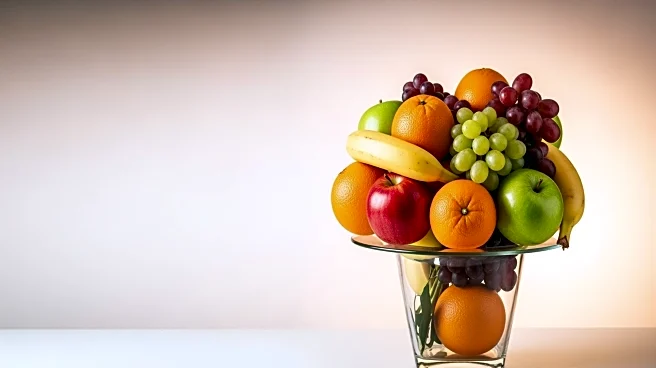What's Happening?
Edible Arrangements LLC has successfully persuaded the Eleventh Circuit to revive its trademark infringement claims against 1-800-Flowers.com Inc. The dispute centers around 1-800-Flowers allegedly purchasing Edible Arrangements' trademarks as keyword
search terms. A lower court had previously dismissed these claims, citing a settlement that covered similar conduct. However, the Eleventh Circuit found that the settlement could not have addressed actions taken by 1-800-Flowers after the agreement was made. Consequently, the appellate court reversed the lower court's summary judgment and remanded the case for further proceedings. The court's unsigned opinion did not address the broader question of whether purchasing a rival's trademark as a keyword constitutes infringement.
Why It's Important?
This ruling is significant as it could set a precedent for how trademark law is applied to keyword advertising practices. If Edible Arrangements prevails, it may impact how companies use competitors' trademarks in digital marketing strategies, potentially leading to stricter regulations and increased litigation in the advertising industry. Businesses that rely heavily on online advertising may need to reassess their strategies to avoid potential legal challenges. The decision also highlights the complexities of trademark law in the digital age, where traditional concepts are being tested against new marketing technologies.
What's Next?
The case will return to the lower court for further proceedings, where Edible Arrangements will have another opportunity to argue its claims. The outcome could influence future legal interpretations of trademark use in keyword advertising. Companies involved in similar practices may closely monitor the case, as a ruling in favor of Edible Arrangements could lead to increased scrutiny and potential changes in advertising practices. Legal experts and businesses alike will be watching for any developments that could affect the broader landscape of trademark law and digital marketing.
Beyond the Headlines
The case underscores the ongoing tension between traditional trademark protections and modern advertising techniques. As digital marketing continues to evolve, legal frameworks may need to adapt to address new challenges. This situation raises questions about the balance between competitive business practices and intellectual property rights, potentially prompting discussions on ethical advertising standards and consumer protection.















